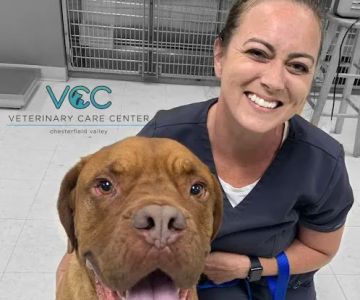How Long Is Schooling to Become a Veterinarian? A Complete Guide
- 1. Steps to Becoming a Veterinarian
- 2. Education Requirements for Veterinarians
- 3. How Long Does Veterinary School Take?
- 4. Additional Training After Veterinary School
- 5. Career Opportunities for Veterinarians
1. Steps to Becoming a Veterinarian
Becoming a veterinarian is an exciting career choice, but it requires years of dedication and hard work. Many people often wonder, "How long is schooling to become a veterinarian?" While the journey may seem long, the rewards are certainly worth the effort. I can tell you firsthand, becoming a veterinarian involves a few key steps, including earning an undergraduate degree, attending veterinary school, and completing additional training in your specific area of interest.
From personal experience, I’ve seen several of my friends and colleagues pursue this path, and the dedication it takes is truly inspiring. The first major hurdle is gaining admission to veterinary school, which often requires several years of preparation. After that, the path involves intensive education and hands-on experience that prepares you to work with animals in various settings. But how long does all of this take? Let’s break it down.
2. Education Requirements for Veterinarians
The educational journey to become a veterinarian is quite extensive. The typical path includes the following stages:
- Undergraduate Degree (4 years): Before entering veterinary school, you will need to complete a four-year undergraduate degree, preferably in a science-related field like biology, chemistry, or animal science. Many veterinary schools require specific prerequisites, so it's important to choose the right courses. I remember spending hours at my university library, studying subjects like microbiology and anatomy to ensure I met all the veterinary school requirements.
- Veterinary School (4 years): Once you’ve earned your undergraduate degree, you can apply to veterinary school. Veterinary programs typically take four years to complete. During this time, you will learn about animal anatomy, physiology, pharmacology, and surgical techniques. It’s a challenging but incredibly rewarding experience. The hands-on clinical training I received was invaluable in building my confidence and expertise in working with animals.
- Licensing (Varies by State): After completing veterinary school, you must pass the North American Veterinary Licensing Examination (NAVLE) and obtain a state license to practice as a veterinarian. Each state has its own licensing requirements, so it’s important to check the specific requirements for your location.
3. How Long Does Veterinary School Take?
So, how long does veterinary school actually take? The duration of your education to become a veterinarian typically spans a total of eight years. This includes:
- 4 years of undergraduate study: As mentioned, this is the time spent earning a bachelor’s degree in a related field.
- 4 years of veterinary school: Veterinary school itself typically takes four years, where you gain specialized training in veterinary medicine.
In total, from the start of your undergraduate degree to becoming a licensed veterinarian, you’re looking at a commitment of around eight years of schooling. For some, this may feel like a long journey, but the payoff is a rewarding career caring for animals. I’ve found that staying focused and passionate about the goal helps during those long study sessions. It’s not just about learning medical terms, but it’s about understanding how to make a difference in the lives of animals and their owners.
4. Additional Training After Veterinary School
While veterinary school provides a comprehensive education, some veterinarians choose to pursue additional training in specialized areas. For example, if you’re interested in surgery, dermatology, or exotic animals, you might pursue an internship or residency program after completing veterinary school.
Specialized programs can take anywhere from one to five additional years, depending on the field. I know a veterinarian who spent three years in a residency program focusing on orthopedic surgery, and the additional training allowed her to become an expert in her field, offering more advanced treatments for animals in need of complex surgeries.
If you're interested in specializing in a particular area of veterinary medicine, this extra time and training can lead to rewarding career opportunities. But even without additional specialization, general practice veterinarians can have fulfilling and impactful careers.
5. Career Opportunities for Veterinarians
After completing your schooling, the world of veterinary medicine offers a variety of career paths. Some of the most common fields include:
- Private Practice: Many veterinarians work in private practices, providing care for pets and other animals. This is often where most veterinarians start, and it offers the chance to work with a wide variety of animals and clients.
- Specialized Fields: As mentioned, veterinarians can specialize in areas like surgery, cardiology, dermatology, and more. Specializing can take additional training but leads to higher-paying and highly rewarding careers.
- Research: Some veterinarians choose to work in research, contributing to scientific advancements in animal health and medicine.
- Public Health and Government: Veterinarians are also needed in public health, working with government agencies to prevent disease outbreaks, manage food safety, and ensure animal welfare.
After completing the required schooling and licensing, a veterinarian has the opportunity to choose from a wide range of career options. Each path offers unique challenges and rewards, and it’s important to find the area that aligns with your passions and career goals. Whether it’s working directly with animals or contributing to research that improves animal care, the options are endless.











